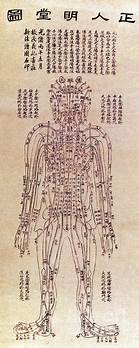It was only when I came across this recent paper that I realized that, apparently, I am THE WORLD CHAMPION in acupuncture reviews. The aim of this paper was to analyze the 100 most-cited systematic reviews or meta-analyses in the field of acupuncture research. 
The Web of Science Core Collection was used to retrieve lists of 100 most-cited systematic reviews or meta-analyses in the field of acupuncture research. Two authors screened literature, extracted data, and analyzed the results.
The citation number of the 100 most-cited systematic reviews or meta-analyses varied from 65 to 577; they were published between 1989 and 2018. Fourteen authors published more than 1 study as the corresponding author and 10 authors published more than 1 study as the first author.
In terms of the corresponding authors, Edzard Ernst and Linde Klaus published the most systematic reviews/meta-analyses (n = 7). The USA published most of the systematic reviews or meta-analyses (n = 24), followed by England (n = 23) and China (n = 14). Most institutions with more than 1 study were from England (4/13). The institutions with the largest numbers of most-cited systematic reviews or meta-analyses were the Technical University of Munich in Germany, the University of Maryland School of Medicine in the USA (n = 8), the Universities of Exeter and Plymouth in England (n = 6), and the University of Exeter in England (n = 6). The journal with the largest number of most-cited systematic reviews or meta-analyses was the Cochrane Database of Systematic Reviews (n = 20), followed by Pain (n = 6). The majority of the 100 most-cited reviews are on pain or pain-related conditions. Only 4 of them focus on safety issues, and all of these are by my team.
The authors concluded that the 100 most-cited systematic reviews or meta-analyses in the acupuncture research field are mostly from high impact factor journals and developed countries. It will help researchers follow research hot spots, broaden their research scope, expand their academic horizons, and explore new research ideas, thereby improving the quality of acupuncture research.
The authors show that, both in the list of corresponding as well as first authors, I am in place number one! Not only that, they furthermore reveal that my department is also in place number 1 (as Universities of Exeter and Plymouth in England (n = 6), and the University of Exeter in England (n = 6) both refer to my unit [in the 19 years it existed the Exeter medical school changed affiliation twice]). This is remarkable, particularly because acupuncture was only one of several research foci of my team (the other 3 being herbal medicine, homeopathy, and spinal manipulation), and my department was closed almost 10 years ago.
When I write about acupuncture these days (mostly on this blog), I often get the impression that the true believers in this therapy don’t especially like what I have to say. I, therefore, fear that the concept of me being the WORLD CHAMPION of acupuncture reviews might cause some degree of displeasure to them.
What can I say?

Leave a Reply